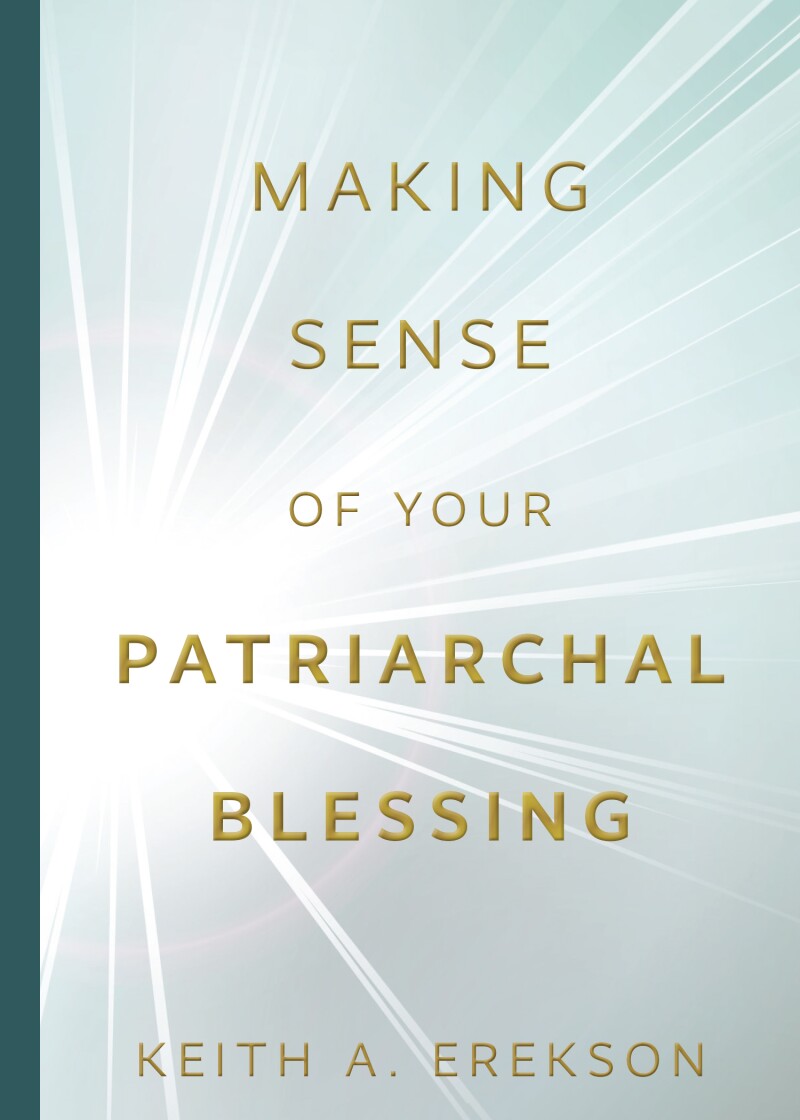Keith A. Erekson is the Church’s director of historical research and outreach and the author of Making Sense of Your Patriarchal Blessing. We recently asked him a bit about his life and about the topic of his latest book. An abridged version of this article ran in the September/October issue of LDS Living magazine.
What is one of your hobbies?
During the pandemic, biking really escalated into a hobby for me. I rode a lot because I didn’t have to commute to work and have now ridden 10,000 miles.
One of the things I love the most is just being outside. The light, the clouds, the shadow—it’s just beautiful. Sunlight coming over the mountains, or a sunset, those are some of my favorite times to be out.
What is one thing that can instantly make your day better?
You know, it’s talking with my kids. I have four daughters, and it’s just great to hear their thoughts and feelings and what they’re doing. They’re really cool.
What is the best career decision you’ve ever made?
When I finally learned that I’m not in charge of my career. I used to try and plan everything and worry about everything, but when I started just trying to do my best and what I thought the Lord wanted, I found that amazing things happened that I never could’ve planned for.
What need are you hoping your new book on patriarchal blessings fills?
I think patriarchal blessings are one of the most amazing gifts that God has given us. And I think we can do so much more with them than we realize. I’ve had a personal quest to figure out what my blessing means, and I’ve been really enlightened as I've done so. I hope that everybody has a chance to really connect with the Lord and receive His blessings.
How would you explain a patriarchal blessing?
I would say a patriarchal blessing is not a destination, but it is a doorway. We don’t go there as a destination to find everything God wants us to know. It’s the doorway that opens up a relationship that we have throughout our lives in learning and following the will of God.
What is wrong with viewing a patriarchal blessing as something that foretells the future?
One of the metaphors we often hear is that a patriarchal blessing is like a map. And on the map you can see every road, every turn, everything you're supposed to do. But a patriarchal blessing just doesn't work that way. It doesn't foretell every single thing. It gives you outlines and directions. And mostly it gives you an invitation to draw closer to the Lord and learn more from Him about these starting prompts that you have in your blessing.
Why is it important that Latter-day Saints better understand their patriarchal blessings?
Right now in our society there’s a common way that people talk about religion. They’ll say things like, “I don’t like organized religion, but I really like spirituality.” And I think a patriarchal blessing lands right in the middle of that binary and makes that idea irrelevant. Because on one hand, your blessing is intensely personal and unique and spiritual—it’s just for you. And on the other hand, the only way you get it is through the organized Church with priesthood authority and a patriarch who can lay hands on your head and give it to you. So it makes that “either or” of religion or spirituality kind of pointless. We say, “Yes, through my organized Church and the power of God on the earth, I can have this intensely personal spiritual experience.”
Are there any common misperceptions you’ve noticed when it comes to patriarchal blessings?
I think there are many. Some people think it’s supposed to predict everything, and then if it doesn’t say something they hoped for, they worry about it. Or other people will think it doesn’t say enough, or it’s too short, or it’s not descriptive enough. Some people say they don’t like what was said, and then they don’t try and figure it out. So I think there’s a whole range of misperceptions across the spectrum.
▶ You may also like: Watch: This 96-year-old just received his patriarchal blessing—‘It was really an eye opener’
What would you say to people who feel like they’ve forfeited promised blessings?
I would say it’s not the end until it’s the end. So as long as we’re still in this life, as long as we’re still moving toward the Final Judgment, everything in our doctrine says we can repent. So if you’ve spent time not doing the things that you think the Lord wants you to do, His invitation has always been that His arm of mercy is extended. He’s calling to you; He’s waiting for you—so answer that and get to it.
What’s the risk of discussing our blessings too openly with others?
I think the most significant risk is coming to treat it too lightly. I think another metaphor for patriarchal blessings is the Liahona in the Book of Mormon. One of the conditions for it working was that they had to speak about it and treat it sacredly and carefully. And when they got too riotous or stopped believing that it was as special as it was, then it stopped working. And I think that's the biggest risk; we take it for granted. But it really is a message from heaven.
How can parents help their children understand patriarchal blessings?
At a very young age, we can do things like just talk about God and His love for us and revelation. We can talk about patriarchs and blessings. We can talk about the Liahona and how it worked, according to the diligence and head that people gave it. I think telling those stories to little kids is really helpful. As people move into their teenage years, I think it's important to talk about it and encourage it. Sometimes we’re afraid we think, ‘Oh patriarchal blessings are really sacred and I’m not supposed to talk about it.’ But I think as parents just sharing a little bit about how something your blessing has helped you let’s children see that you cherish it. Then I think it just becomes natural that as people get to the age where they’re facing these kinds of decisions. They think, oh, yeah, I want this thing that’s been helpful that I’ve heard about.
What does it mean to you to reinforce your spiritual foundation?
We often talk about foundations in words that are inflexible. We talk about them being firm or strong or built on a rock. But my office in the Church History Library looks out over Temple Square, so I’ve had a front-row seat to the remodeling of the Salt Lake Temple. And one of my really smart friends pointed out that they’re not trying to make the temple firm or rigid or stiff. They’re actually trying to make it flexible so that when all of the world around the temple shakes, the temple will shift a little, but it will stay there. So that’s really made me think about my spiritual foundation not being rigid and dogmatic, but flexible and can change direction when the Lord says to change direction.



